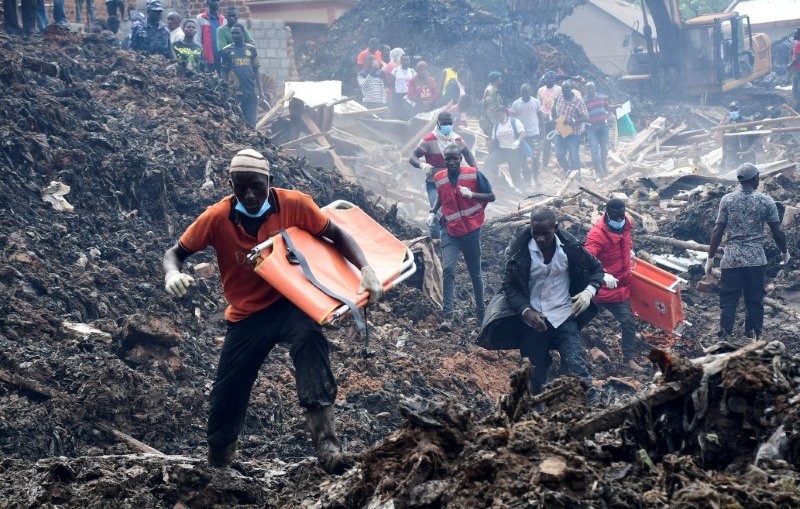A year after the devastating collapse of the Kiteezi Landfill in Kampala’s northern suburbs, dozens of bodies remain unrecovered and dozens of families continue to wait for closure. On the morning of August 10, 2024, a massive landslide of waste at the landfill engulfed homes, people and livestock leaving at least 34 dead and many others missing.
Rescue teams from the Uganda Red Cross Society, the Kampala Capital City Authority (KCCA), and the police worked for days, retrieving bodies and evacuating survivors, but the numbers have been inconsistent and the operation remains incomplete.
Despite the effort, authorities confirmed that at least 11 people remain unaccounted for. The confusion has sparked outrage among MPs, residents, and families who say the response has been slow and uncoordinated.
Victims’ relatives are also pressing for compensation and support. President Yoweri Museveni directed financial assistance of Shs 5 million per deceased and Shs 1 million per injured, but many say bureaucracy and delayed identification are holding up payments.
Beyond the grief, the tragedy has exposed broader systemic failures: the landfill was operating far above capacity, houses stood non-compliantly close to the dump site, and drainage and support systems were under-resourced. Experts say the incident is a sharp wake-up call for urban waste management reforms in Kampala and other growing cities.
Meanwhile, families continue to wait. Some bodies remain unclaimed, others yet to be identified, and many survivors have not returned to their homes even as the site remains a hazard. The disaster’s human, social and environmental consequences continue to ripple across the community.
